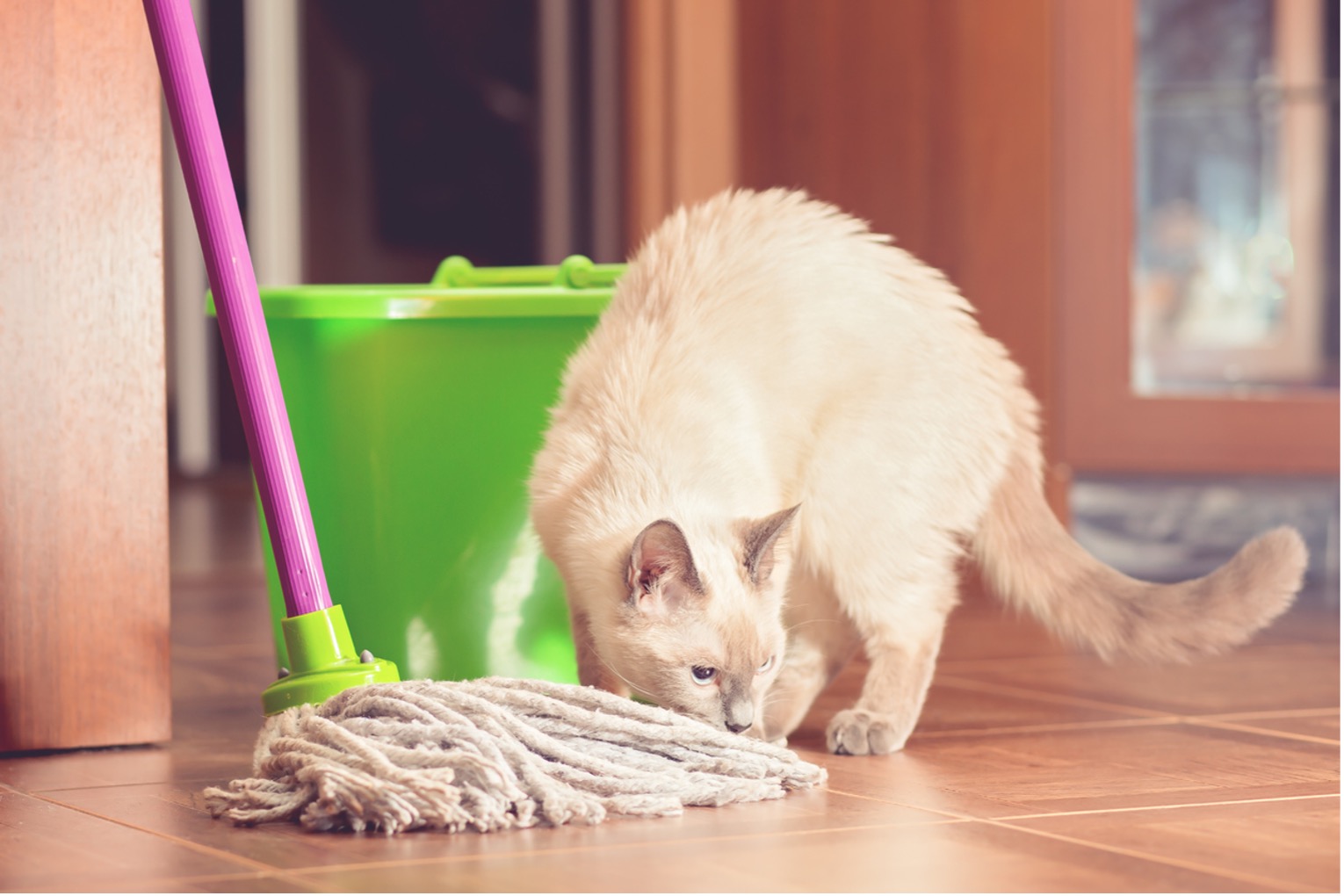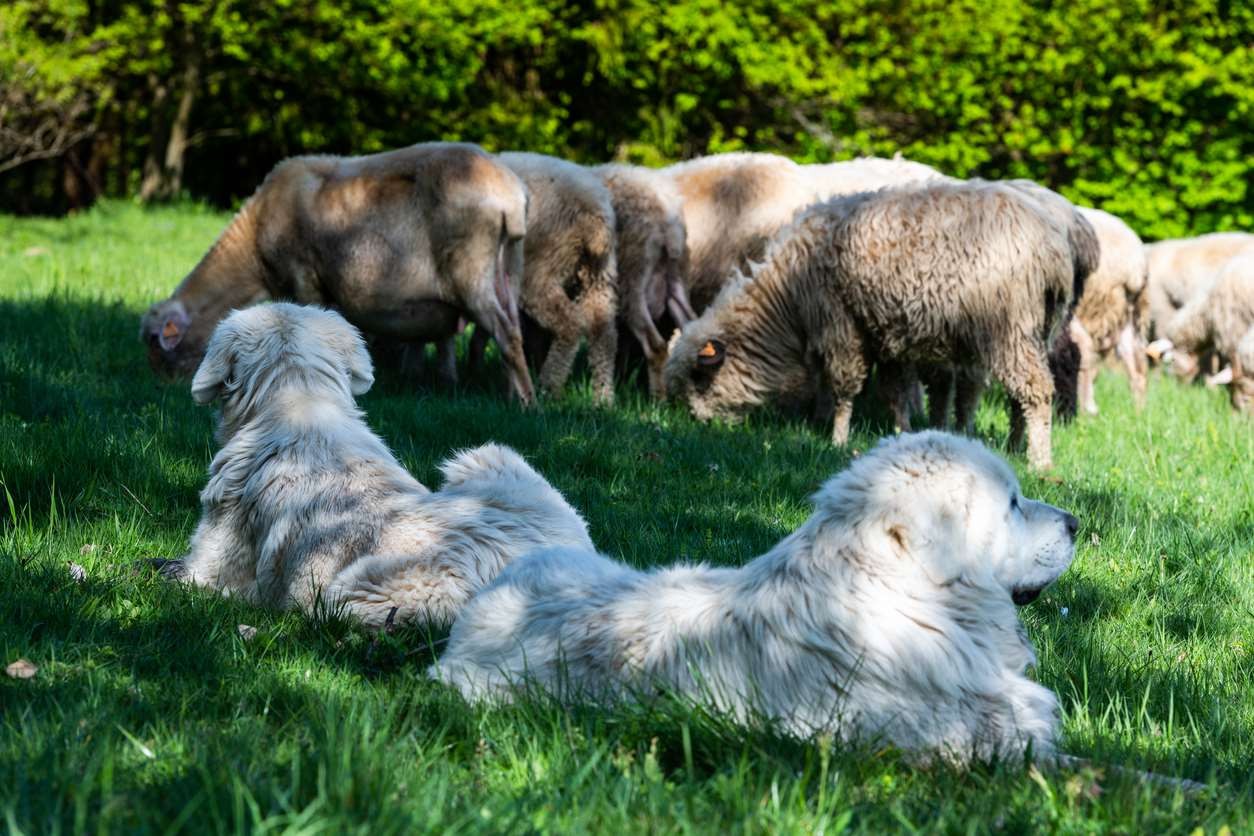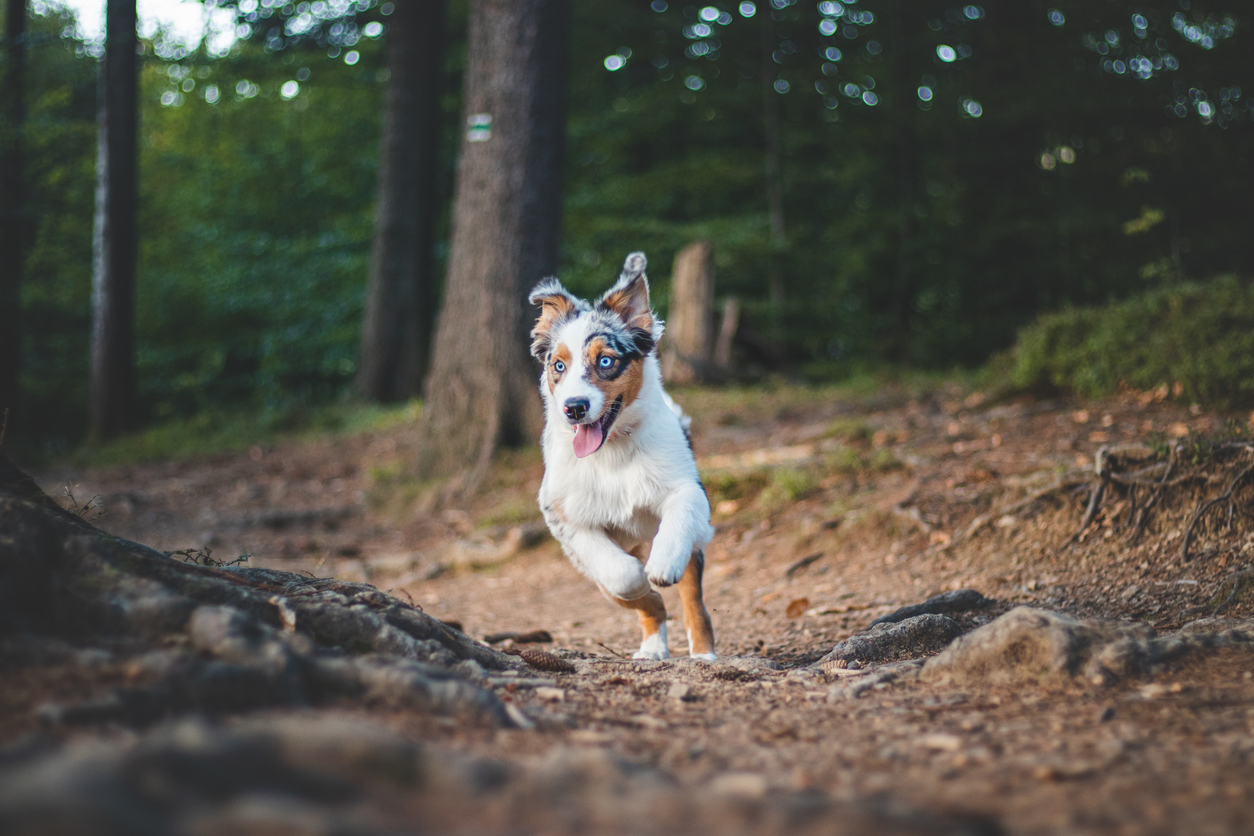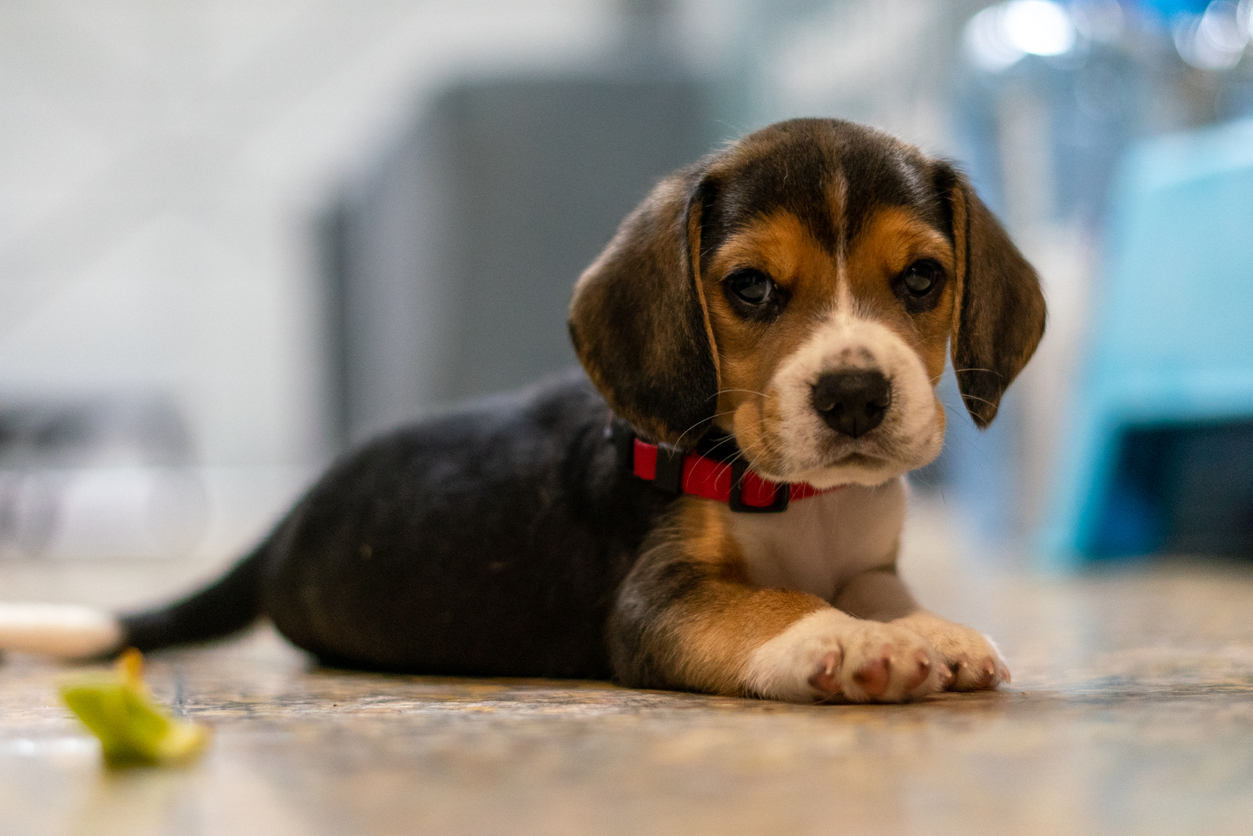Welcome to our comprehensive guide on safeguarding companion animals during National Pet Poison Prevention Month. As we embrace the arrival of spring, it’s essential to recognize the potential hazards that lurk within our homes and surroundings, posing threats to the well-being of our beloved pets. Pet poisoning risks are often underestimated, from everyday household items to seemingly harmless plants. In this blog, we will cover the aspects of pet poison prevention, shedding light on common toxins and offering practical strategies to keep your pets safe from harm. Join us as we navigate the ins and outs of protecting your pet’s health and ensuring a secure environment for their flourishing lives.
Cleaning Products
March is here and it is time for spring cleaning? Many cleaning products are fine to use around your pets. However, your cleaning product may have special instructions to ensure the safety of your animals.
For instance, if the label states, “Keep pets and children away from the area until dry,” follow those directions to prevent possible health risks. Products containing bleach can disinfect many household surfaces when used correctly. However, they can cause stomach upset, drooling, vomiting or diarrhea, severe burns if swallowed, and respiratory tract irritation if inhaled in a high enough concentration. In addition, skin contact with concentrated solutions may produce severe chemical burns. Some detergents can create a similar reaction, and cats can be susceptible to ingredients such as phenols. Phenols are organic compounds that you find in many products.
As a rule, store all cleaning products in a secure cabinet out of the reach of pets and keep them in their original packaging or a clearly labeled and tightly sealed container.
Air Fresheners
Some air fresheners can be quite toxic, especially to animals (and children!) who might ingest the substances or cannot avoid the parts of the home where you place air fresheners.
Most air fresheners contain volatile organic compounds (VOC). VOCs are organic chemicals that have a high vapor pressure at room temperature. These substances can cause a long list of maladies. According to the Environmental Protection Agency, the health effects of VOCs may include:
- Eye, nose, and throat irritation
- Headaches, loss of coordination, lethargy, and nausea
- Damage to the liver, kidney, and central nervous system
- Some VOCs can cause cancer in animals; some are suspected or known to cause it in people.
Essential Oils
Essential oils, which many air freshener products include in their ingredients, can be very toxic, especially to cats. If you simply must have essential oils in the home, keep them in a location where your pets cannot contact them directly.
For more information about air fresheners and essential oils toxicity to pets, you can read an article from PetMD, How Air Fresheners Can Affect Your Pet’s Health.
Poisonous Plants
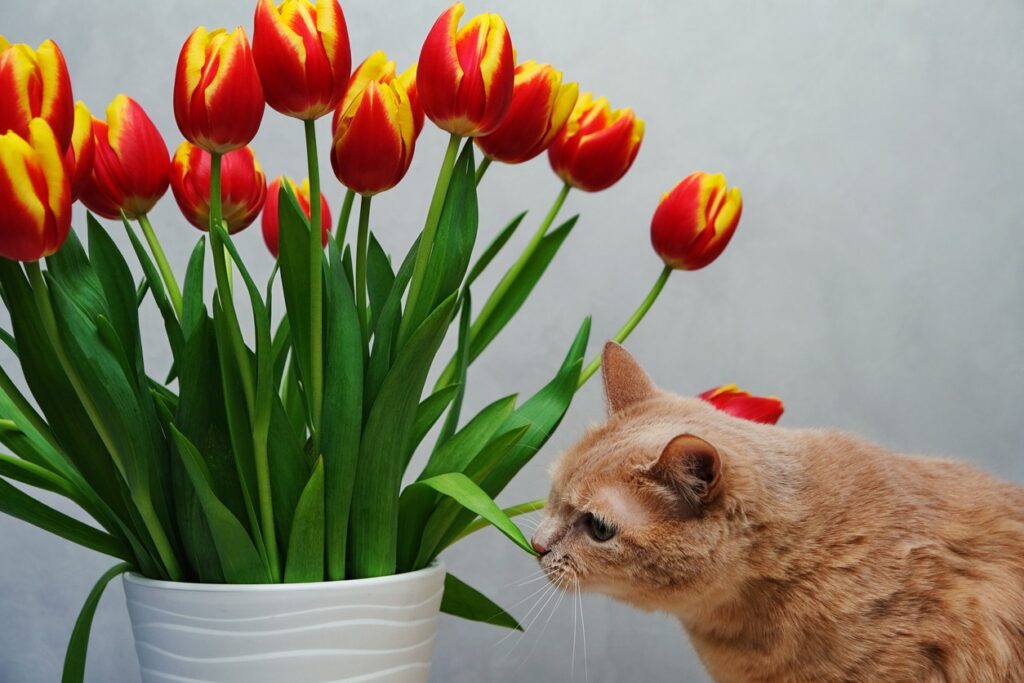
Many plants are poisonous to people and pets. Some toxic plants grow wild or are part of home landscapes, house plants, or floral arrangements. So, being familiar with all types of poisonous plants is essential.
Whether you have a dog, cat, or exotic small animal, it is essential to ensure no poisonous plants are in your pet’s environment. Many websites list poisonous plants. For example, you can get a list of toxic and non-toxic plants from the ASPCAs article, Poisonous Plants. You can also search the web for a particular species, such as “Poisonous plants for dogs or cats” or “Poisonous plants for rabbits.” Researching and ensuring that plants in your home or your pet’s environment won’t risk their health if ingested is crucial. This simple precaution can help keep your pet safe and healthy.
In Modena, New York, during this time of year, there are several common plants that can be poisonous to pets if ingested. Some of these plants include:
Azaleas and Rhododendrons: These flowering shrubs contain toxins called grayantoxins, which can cause vomiting, diarrhea, and even coma in pets if ingested in large amounts.
Lilies: Easter lilies, tiger lilies, and daylilies, are highly toxic to cats. Ingestion can lead to kidney failure and even death.
Sago Palm: This ornamental plant is highly toxic to pets, especially dogs. Ingestion of any part of the plant can lead to severe liver failure and potentially death.
Autumn Crocus: This plant contains colchicine, which can cause severe gastrointestinal upset, kidney and liver damage, and even respiratory failure in pets.
Tulips and Hyacinths: These popular spring flowers contain toxins in their bulbs which, if ingested, can cause vomiting, diarrhea, and drooling in pets.
Daffodils: All parts of the daffodil plant contain toxic alkaloids which can cause vomiting, diarrhea, abdominal pain, and even cardiac arrhythmias in pets.
English Ivy: Ingestion of English Ivy can cause gastrointestinal upset, drooling, vomiting, and abdominal pain in pets.
Insecticides/Pesticides/Herbicides/Rodenticides
As with household cleaners, read and follow label instructions before using any type of insecticide, pesticide, herbicide, or rodenticide in your pet’s environment. For example, flea and tick products labeled “for use on dogs only” should never be used on cats or other species, as severe or even life-threatening problems could result. Always consult your veterinarian about the safe use of these products for your pet.
If you can’t keep your pets from toxic chemicals, play it safe and find non-toxic alternatives. Here are some sites to give you some ideas:
If a pet ingests rat or mouse poison, potentially serious or even life-threatening illness can result; therefore, when using any rodenticide, it is important to place the poison in areas completely inaccessible to pets. Some newer rodenticides have no known antidote and can pose significant safety risks to animals and people.
Foods Poisonous to Pets

Food is in the top three of the most common things that poison pets. Food that is safe for humans can be deadly for pets. To be on the safe side, you should never allow your pet to have any of the following foods:
- Coffee – either the grounds, beans, or the drink itself. Caffeine of any kind can be deadly if ingested in sufficient quantity.
- Chocolate
- Avocado
- Xylitol (artificial sweetener)
- Garlic
- Onions
- Salt
- Grapes or raisins
- Alcohol
- Foods with a lot of fat
- Macadamia nuts
Human Medication
Pets ingesting medication meant for humans is the number one reason people call the animal poison control number.
You should never give your pet any human medication unless specifically directed by your veterinarian. That includes:
- Painkillers like ibuprofen, naproxen, or acetaminophen (Advil, Aleve, Tylenol, etc.)
- Antidepressants or anxiety medications
- ADHD drugs (Ritalin, Concerta, etc.)
- Cold medicines
- Diet pills
- Prescription medications for medical conditions
- Vitamins and supplements. * Note: there are vitamins and supplements made for pets. Please ask us if you would like to learn more about them for your pet.
Marijuana
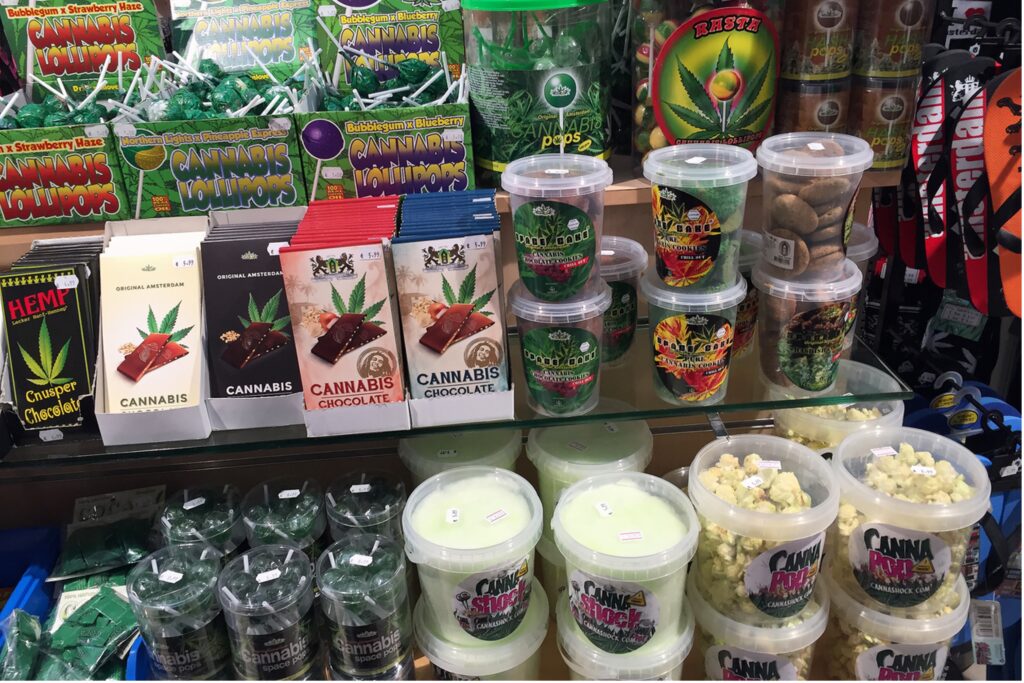
Marijuana can pose significant dangers to our furry companions, including exotic pets. With the legalization of marijuana in New York, the risk of accidental ingestion by pets has increased. Dogs, in particular, are susceptible to marijuana toxicity, which can lead to symptoms such as lethargy, incoordination, vomiting, tremors, seizures, and even coma in severe cases. Cats, birds, and other small mammals can also experience adverse effects from marijuana ingestion.
Pets may come into contact with marijuana through ingestion of the plant itself, edibles containing THC (the psychoactive component of marijuana) or inhaling secondhand smoke.
They can also ingest marijuana or products containing THC from items discarded on the ground or in the garbage
Pet owners must keep marijuana and related products securely stored out of reach of pets and be aware of the signs of marijuana toxicity. If you suspect your pet has ingested marijuana, seek veterinary care immediately to ensure prompt treatment and recovery.
Tobacco
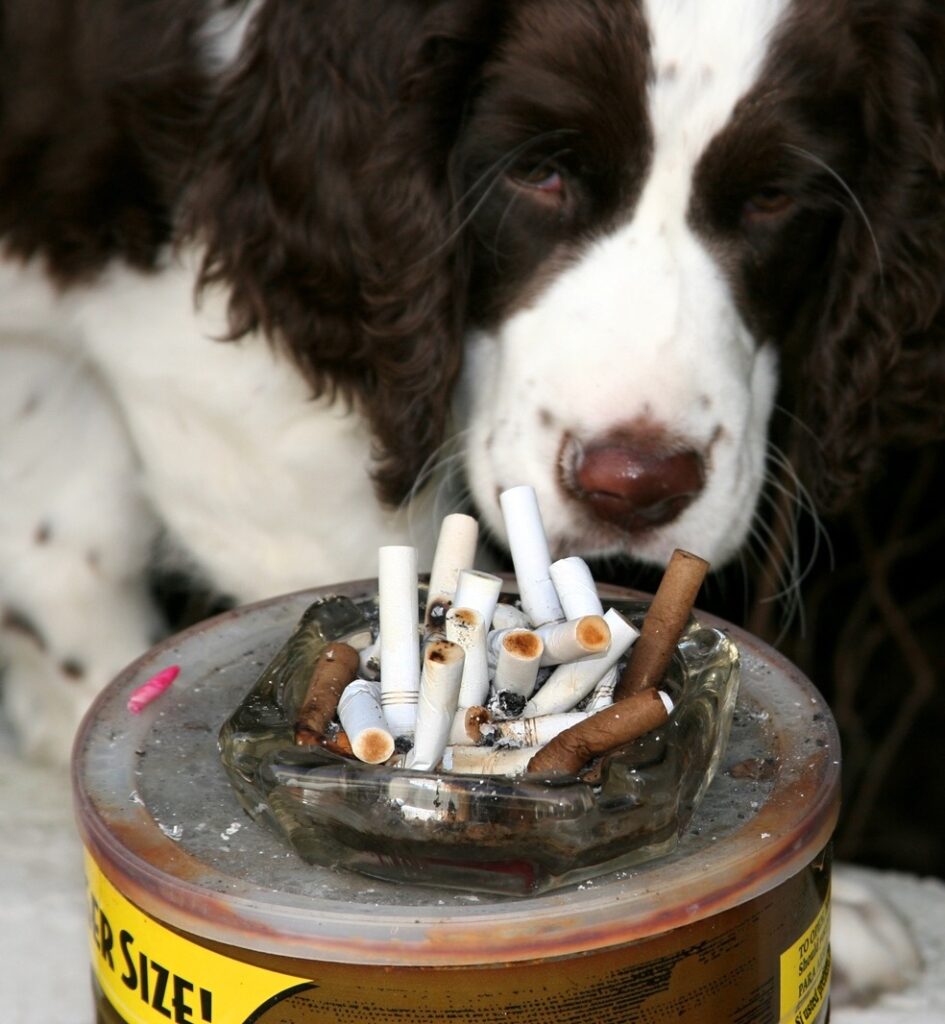
Tobacco products are not safe for any pet and are particularly deadly for birds and pocket pets like guinea pigs or hamsters. Just a tiny amount of tobacco from a cigarette butt can cause severe poisoning if ingested. The toxic dose for nicotine in pets is 0.5 to one mg per pound of pet body weight, while the lethal dose is four mg per pound of pet body weight.
Below is a chart to relate quantities of tobacco products:
To put this in some perspective, a 1 ½ pound Guinea pig would only need to eat one cigarette butt to become poisoned. A 40-lb dog would need less than a quarter teaspoon of e-juice.
Signs of Poisoning
While pet poison prevention is critical, accidents can happen. Know the signs of poisoning so you can tell as rapidly as possible if your furry friend needs medical attention. These are some of the symptoms to watch out for:
- Vomiting
- Diarrhea
- Lethargy
- Irregular/stumbling gait
- Lack of appetite or water intake
For more information about the symptoms of pet poisoning, visit Pet Poison Helpline.
How to Handle Pet Poisoning
If you suspect your pet has ingested something poisonous, don’t wait! Call:
The ASPCA Animal Poison Control: (888) 426-4435. They have all the poisonous ingredients and treatments to guide you and are available 24 hours a day, seven days a week. They can also send us their information and treatment directions so we can all work together to help your pet.
You can also call the Pet Poison Helpline: (855) 764-7661
Again, the faster you act, the better your furry family member’s chances to fully recover.
Pet parents whose pets are registered with Home Again Microchip can call 1-888-466-3242. The Home Again 24/7/365 Medical Hotline is included with your membership to Home Again.
As an important reminder, do not induce vomiting in your pet after poison ingestion unless a trained professional directs you to do so.
Please keep the ASPCA Animal Poison Control number, the Pet Poison Helpline, numbers for emergency veterinary hospitals near you, and our contact number so these numbers are easily accessible during a crisis. If your pet does ingest something poisonous, try to remain calm and contact one of them immediately.
Empowering Pet Owners for a Safer Tomorrow: Advocating Pet Poison Prevention
This blog provides valuable insights into pet poison prevention but does not list every known toxin. Pet owners are encouraged to research and consult with a qualified veterinarian regarding potential hazards in their pet’s environment. While the information presented here aims to raise awareness and promote proactive measures, individuals may experience varying circumstances. Addressing specific concerns related to pet health and pet poison prevention requires essential professional guidance.
By staying informed, vigilant, and prepared to respond to potential threats, you pave the way for a safer and happier coexistence with your faithful companions. Let’s continue to prioritize the safety and flourishing of your furry family members, ensuring they thrive in environments free from harm. Please contact us if you have any questions or wish to schedule an appointment.
Your Caring Team at

